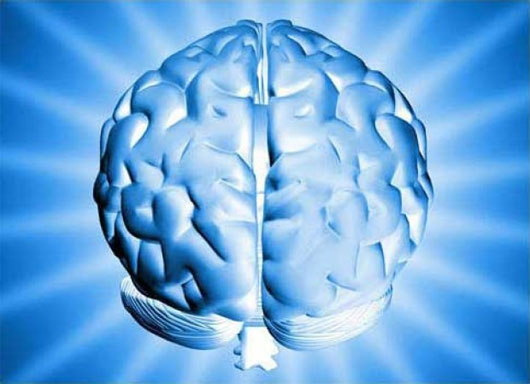Genetics of the brain can cause disease
The nerve cells of the human brain are genetically heterogeneous, a group of US-Russian scientists proved. Neurons differ markedly both in their own DNA structure as well as in the number of chromosomes. The discovery of similar 'mosaic' genetic structures allows for the discovery of the origin and development of some particularly serious diseases, such as Down syndrome.
For a long time, there has been a biology theorem that all human body cells, except sex cells, have the same genes and chromosomes. However, the group of Russian-American scientists headed by Ira Hall geneticist, Fred Gage and Svetlana Shumilina shook this view.
The group of scholars has demonstrated that in the human brain there is a genetic 'mosaic'. Neurons may differ significantly according to the 'living' factors in their DNA structure - also known as transposon jumping genes - even carrying abnormal numbers of chromosomes. Moreover, even with the same gene, they may have different copies of the number.

Photo: rapidcityjournal.com
From the marrow of three patients, scientists identified 110 individual neurons and identified their components. The findings show that more than 40% of neurons exhibit diversity in the number of gene copies: some are missing while others are redundant.
This experiment is also repeated with nerve cells, developed 'in vitro' from stem cells. Of these 40 neurons, up to 13 cells have mutations that vary in the number of gene copies. While this phenomenon is not observed in neuronal cells. This means that genetic diversity has occurred in them within a few weeks, when mature mature neuronal cells take place.
In the human body, this process ends quite early and can have a noticeable impact on the structure of the mature brain and its activity. But exactly how the impact is, this has to be determined. It is clear that neurons with different genetic structures produce some proteins at different amounts, the scientists noted.
The brain needs such genetic diversity to do, this question still has no answer. It is also possible that different types of genetic "mosaic" will cause different diseases, said Svetlana Shumilina. According to her, there is a work plan to establish this relationship in the future.
- 5 genetic diseases can be prevented
- Technology boom for visually impaired people
- A scary discovery in genetics
- Brain shrinks before finding Alzheimer's disease
- Is Alzheimer's genetic?
- I inherited more from my father than my mother
- 8 causes of 'brain fog' syndrome
- He: warns a kind of animal brain disease that can infect humans
- The eyes reveal the state of the brain
- The mysterious disease is only diagnosed after the patient has died, because the doctor needs to cut their brain
- ADHD is caused by genetic disorders
- What is the small head disease caused by Zika mosquito virus?
 Green tea cleans teeth better than mouthwash?
Green tea cleans teeth better than mouthwash? Death kiss: This is why you should not let anyone kiss your baby's lips
Death kiss: This is why you should not let anyone kiss your baby's lips What is salmonellosis?
What is salmonellosis? Caution should be exercised when using aloe vera through eating and drinking
Caution should be exercised when using aloe vera through eating and drinking